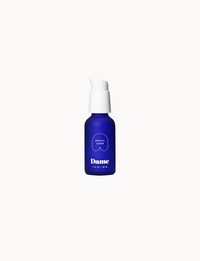Recently, I realized I’d never had casual sex. Let me clarify: I’ve had a lot of sex with people I didn’t have an intimate or committed relationship with. At the time, I would have called it casual. But something nagged at me. Most of those experiences felt unfulfilling, often boundary-violating, and left me emotionally hungry. In short, I just didn’t feel casual about it. I’m far from the only one who’s struggled with the notion of casual sex. “It’s really, really difficult for me to have casual sex, because there’s nothing casual to me about experiencing intimacy with someone,” says Sexuality Doula and author Ev’Yan Whitney. When they were in their 20s, they felt bad about this lack of desire for casual sex. These days, Whitney has come to celebrate what they actually want — not what society has told her to want. As a Sexuality Doula, she helps others affirm their own needs and desires, as well.* “There’s something really powerful about staking claim into what you want,” Whitney says. That includes your desire (or lack thereof) for sex outside of committed relationships. Casual sex can be fraught for many of us. It requires us to examine our true intimacy needs while sorting through contradictory societal messages. Regardless of your sexuality or relationship status, this process of reflection can help bring you closer to your most committed sexual partner — yourself.
What Is Casual Sex?
“The standard definition is having hookups with people, whether those are strangers, or friends with benefits, or people you meet on dating apps,” says Whitney. “Basically, sex that doesn’t have any attachments or any commitments.” But like sex itself, casual sex can mean different things to different people. Those diverse definitions are a beautiful part of human sexual expression. Whitney, who is on the asexuality spectrum, says, “For me, casual sex can look like making out with someone. That for me feels like a very sexually intimate act.” For you, casual sex might look like a quick hookup with a friend at a bar, or an all-night massage exchange with someone you’ll never see again.
Sex, no matter what the context, can be intense, unexpected, euphoric, contradictory, boring, poignant, or any combination of these things.
Relationship expert Natalie Lue offers a simple and elegant definition. “If you can’t be casual about casual sex, then for you, it’s not casual sex,” she writes. I love this definition, because it shifts the focus from external judgments to how the sex actually makes us feel. Casual sex is sex that feels casual to you, full stop. Lue defines casual as “relaxed and unconcerned,” and writes, “If the emotional and mental consequences of a casual sex encounter are going to linger for considerably longer than the duration of the encounter (from arranging to completion), it’s best to decline.” (Or, in my view, to at least reflect on your relationship with those consequences, and take care of yourself afterward!) I define casual as a way sex makes my body feel afterward. Sex, no matter what the context, can be intense, unexpected, euphoric, contradictory, boring, poignant, or any combination of these things. For me, casual feels like a full belly after a decent meal: It was interesting, I’m satisfied, but I don’t necessarily need to make that dish again. If, on the other hand, sex leaves you feeling emotionally drained, triggered, overwhelmed, or you find yourself spending a lot of energy trying to parse the other person’s feelings — that doesn’t sound like a relaxed experience! It’s absolutely okay to have those intense feelings after sex. The point is to honor your own emotions, no matter their intensity, rather than dismissing your authentic experience of sex because you feel like you should be more “casual.”
Dealing With Stereotypes
For some of us, casual sex can be a truly lighthearted experience. It might not feel vulnerable at all, and that’s totally okay. But for most of us, sex is always vulnerable to some degree. It can bring up past traumas and difficult feelings about our bodies. We can contract an STI. We can experience sexual assault or boundary violation. Some of us may experience unwanted pregnancy. Our identities determine the shape this vulnerability takes. Women and feminine people are especially taught to experience sexual shame and self-judgment. We may be socially, emotionally, and physically punished for being “too sexual,” according to a meaningless social standard. On the other hand, we can also experience pressure to have sex in order to prove that we are “sexually liberated.” Whitney says she felt this pressure in her 20s. “A lot of what was given to me in terms of how to fix yourself and heal yourself and be an empowered woman was to just have sex.” Queer people may feel the pressure to have sex to “prove” our identities to others. But we have nothing to prove! “You are queer because you say so,” Whitney says.
Your body knows the difference between what you actually want and what you think you should want.
Similarly, society often stigmatizes folks on the asexuality spectrum and pressures them to have sex they don’t want. But experiencing low or no sexual desire isn’t a problem to be “fixed.” “It’s okay for you to not have sex if you don’t want to!” Whitney says. Racism, too, affects the way people of color experience desire. “Particularly for Black women and femmes, we’re both fetishized and also invisibilized,” says Whitney. Society also objectifies Black men and masculine people. “It’s very limited and flattening to the many identities that we actually hold, and the many expressions that we have as Black individuals,” says Whitney. It’s hard to navigate all these pressures! Remember that you never have to justify your sexuality. All sex should be deeply wanted sex. “You’re sexually liberated just because you say you are,” says Whitney.
Affirm What You Want…Not What You Want to Want
Whitney often encourages clients to ask themselves: “Is this something I want, or something I’ve been told I should want?” Answering this question is hard! With so much pressure to conform to sexual stereotypes, it’s daunting to identify and own what we actually want and need. Naming our needs can be a deeply vulnerable experience. When we name what we want, we then have to confront all the false messages that tell us we don’t deserve to have our needs met. But we are all worthy of intimacy and pleasure. Your body knows the difference between what you actually want and what you think you should want. Ask yourself: When I get what I said I wanted, do I feel satisfied and excited? Or do I feel deprived and disappointed? If you have casual sexual experiences you thought you wanted, that were otherwise respectful, but you leave feeling emotionally hungry, you may be experiencing what Natalie Lue calls “the hidden agenda.” These are the needs we are looking to fill, but that we haven’t fully articulated even to ourselves. When our actual needs are out of sync with what we think we should want, we will likely find ourselves unfulfilled. This is particularly relevant for women and femmes, who are taught to minimize our own needs.
If you’re having casual sex that leaves you feeling deprived, ask yourself: What am I truly looking for?
Am I looking to experience sexual pleasure without enduring emotional commitment? Or am I looking for validation, a distraction, or to avoid my own needs? How can I validate myself, and find other people and experiences who genuinely affirm me? The answer might simply be to have casual sex with folks you’re more compatible with — or to focus on self-pleasure while you slow down your dating. The opposite can be true, too. Perhaps you simply feel horny, and want to experience sexual pleasure in a casual context. But because of cultural pressure to be coupled, you feel you should seek a committed intimate relationship. Dating someone seriously when you really want casual will also likely lead to disappointment. “Let yourself want what you want,” says Whitney. “As soon as you declare what you want, the universe opens up.”
Identify Your Support Network
We all deserve safety, and support. No matter our relationship status, we should treat all sexual partners with respect. But sometimes, the people we have sex with are not people we want or feel comfortable turning to for emotional or health support. As part of identifying your desires around casual sex, it can help to also identify your resources and support networks. Do you feel able to communicate with casual partners about STIs? What are your boundaries around safer sex? How would you feel if you contracted an STI after casual sex? What resources or support networks could help you seek healthcare? What is your relationship to pregnancy risk? If you could become pregnant, and don’t wish to, what is your contraceptive practice? How would you feel if contraception failed in a casual encounter? What resources or support networks would you draw on to access emergency contraception, abortion, or pregnancy care? You also deserve emotional support. We can practice aftercare with our sexual partners, but we can also turn to other loved ones for post-sex support. Do you enjoy debriefing sexual encounters with friends? Do you have specific triggers around sex, and if so, how will you care for yourself if you are triggered? Learning more about your own care needs and preferences can be immensely helpful, no matter what kinds of sexual relationships you have.
Define Sexual Liberation for Yourself
As for me, a couple of years ago, I finally realized my own hidden agenda. I wanted a committed relationship, but I was seeking intimacy in encounters that I told myself were casual. That discrepancy between what I wanted to want, and what I actually wanted, was a one-way ticket to disappointment station. I named what I truly wanted. I accepted it was possible that I simply wasn’t meant to have casual sex — and that was okay! Of course, the universe is abundant with contradiction: When I finally affirmed my needs and began to meet them, sex actually started feeling much more, well, casual! Your journey will be different than mine, just like mine is different than Whitney’s. And that’s a wonderful thing! After all, says Whitney, “There are many different ways to be sexually liberated.” Whether you decide casual sex (or sex at all!) is part of your liberation, you deserve grace on that journey.




















































